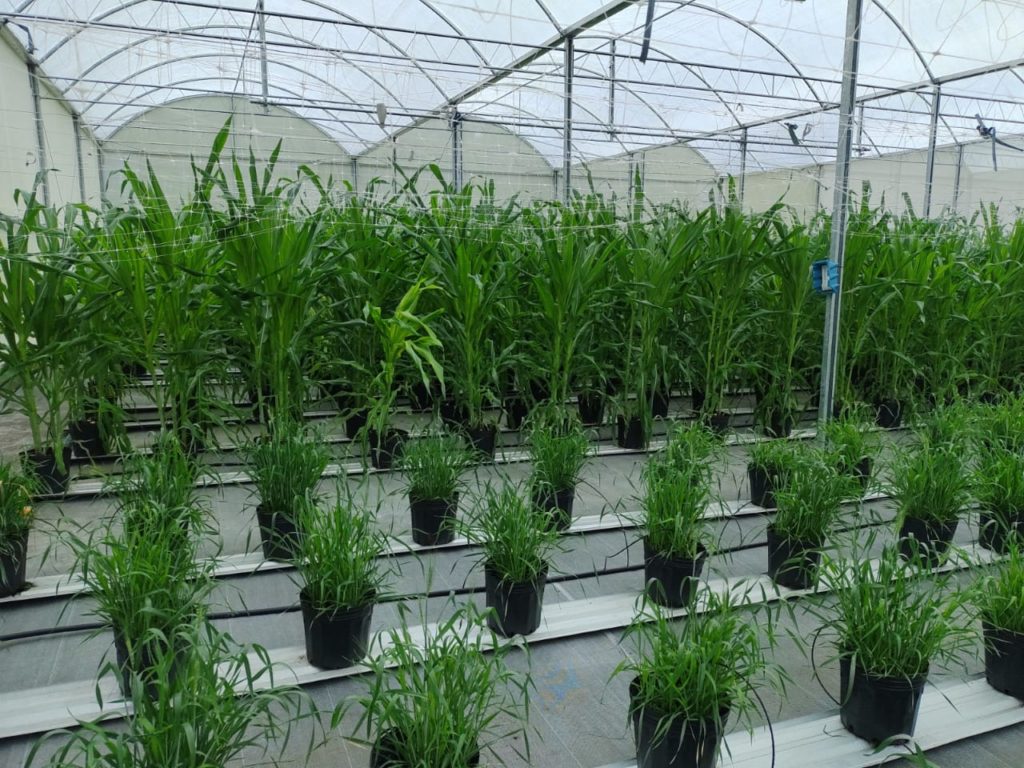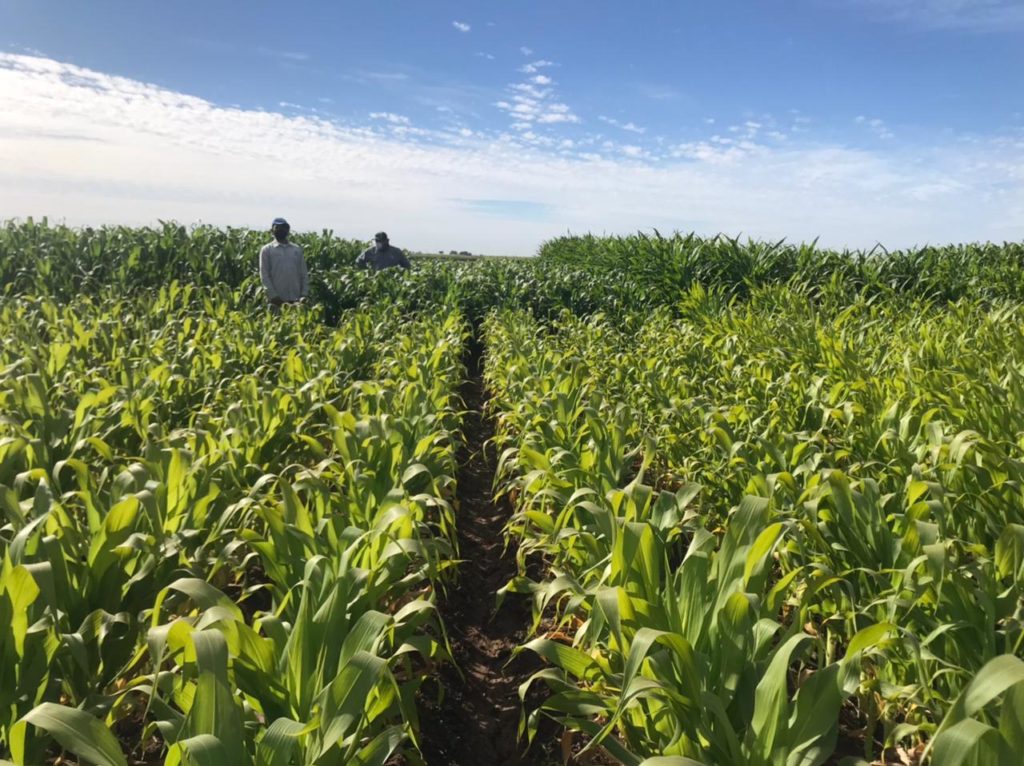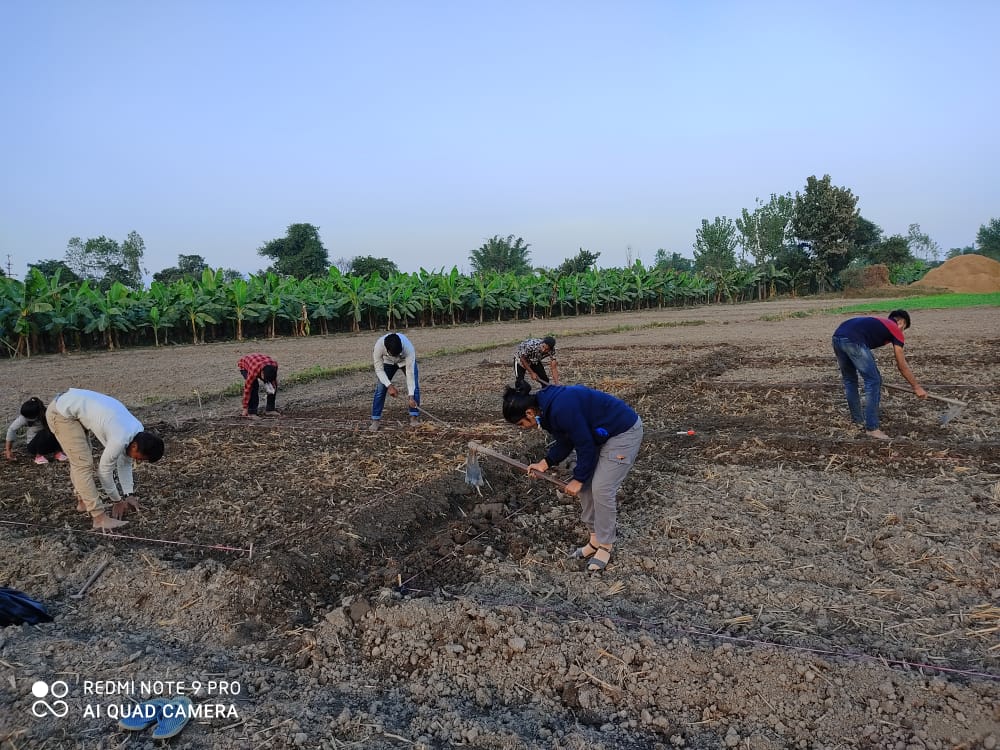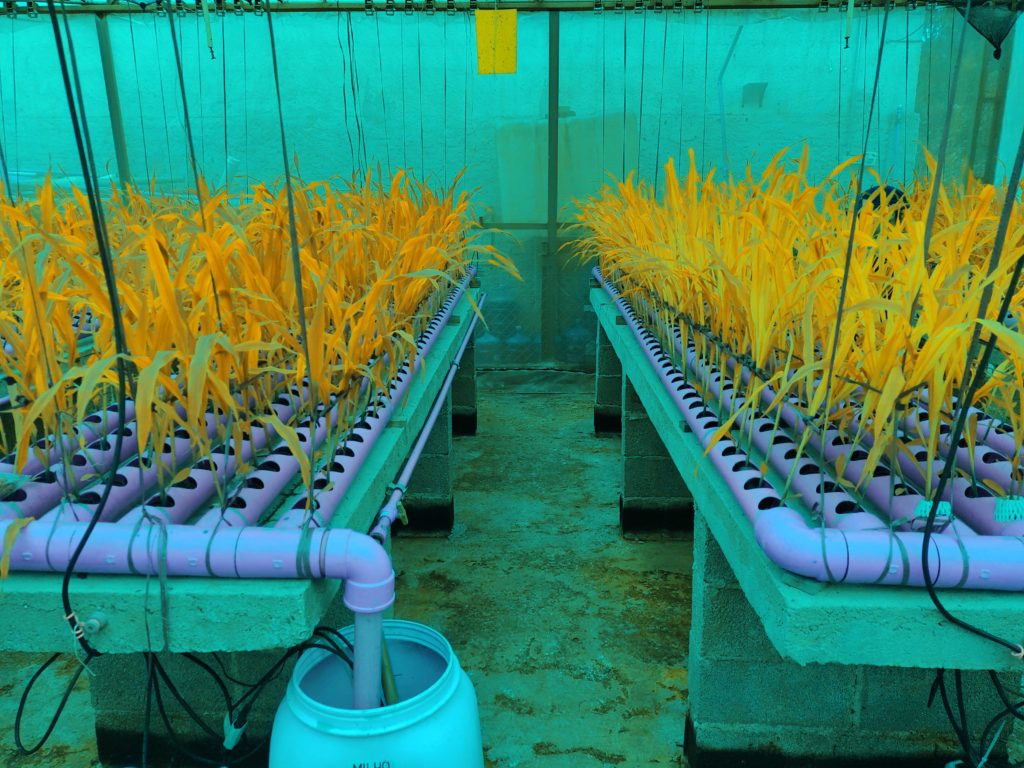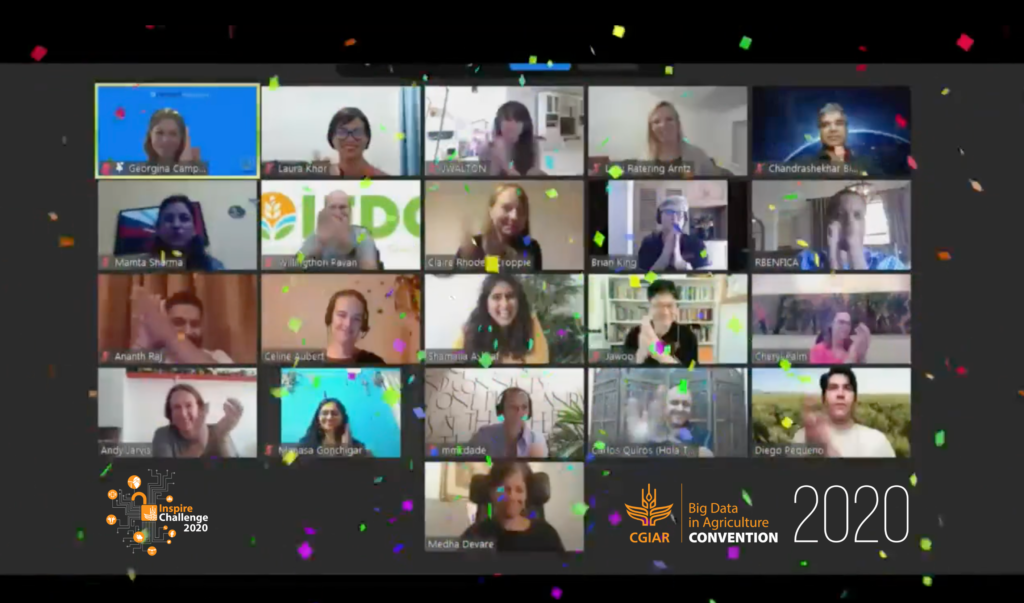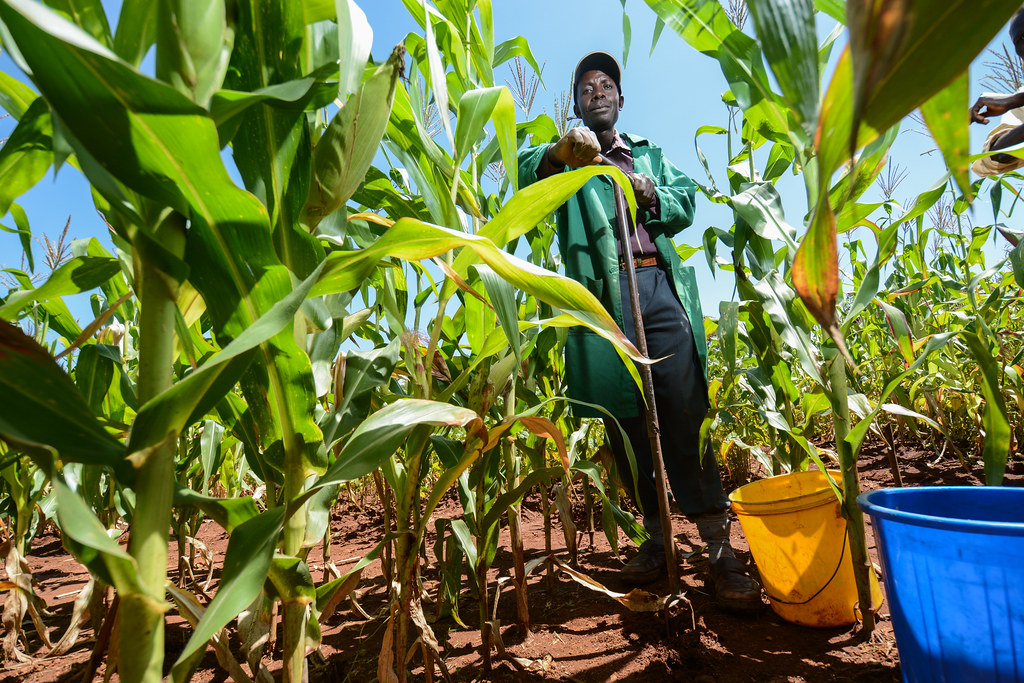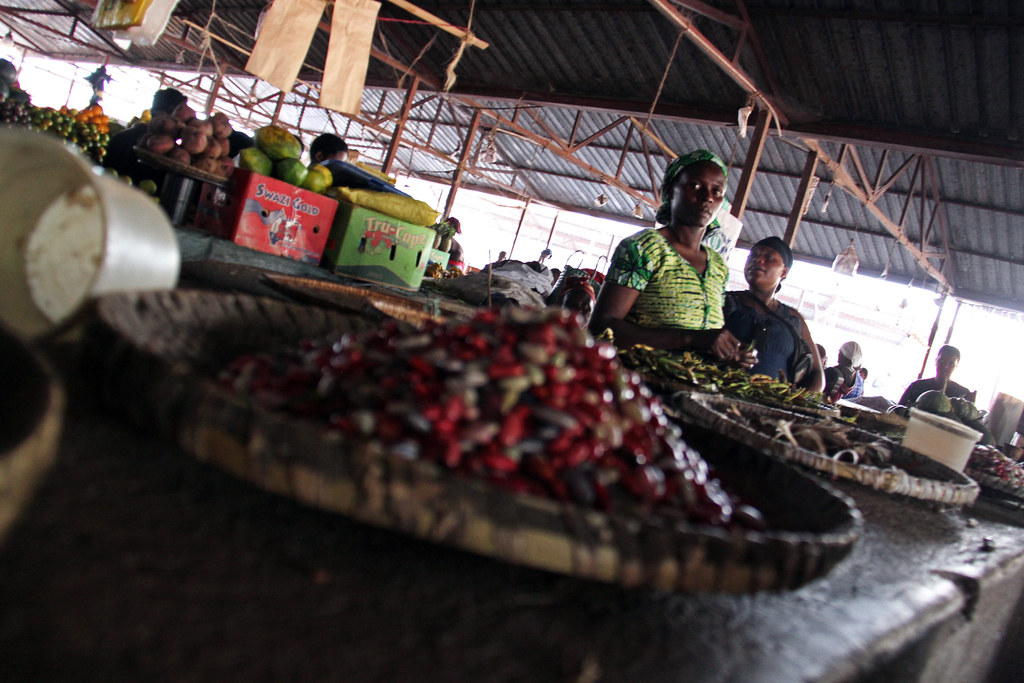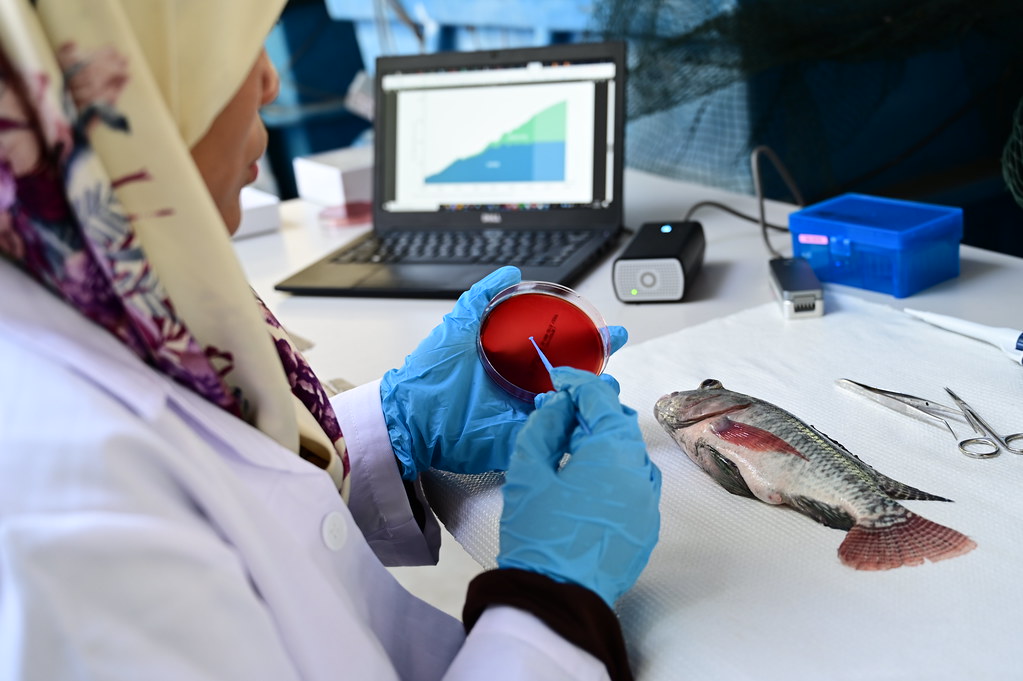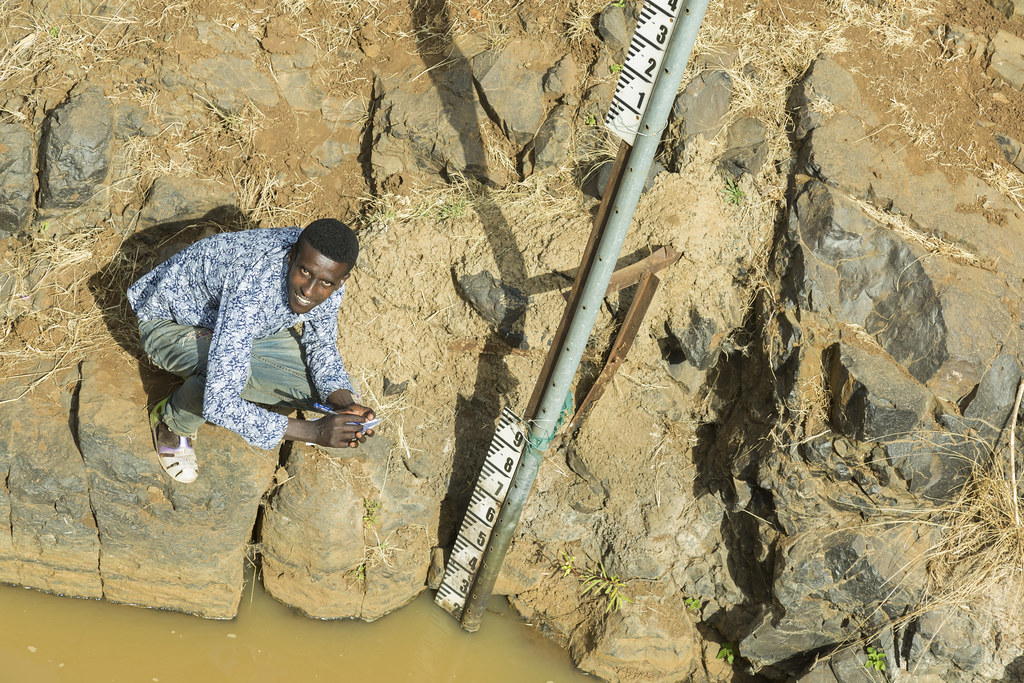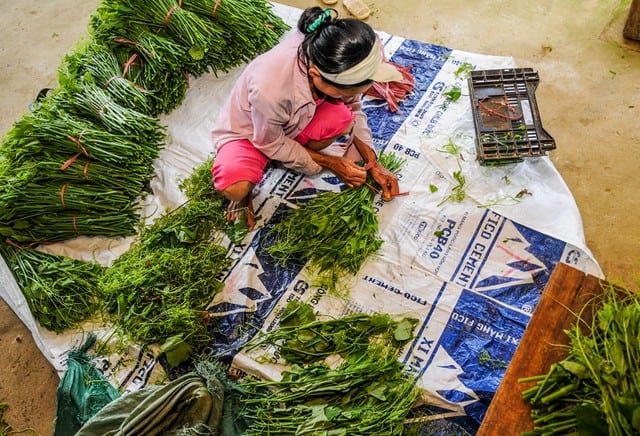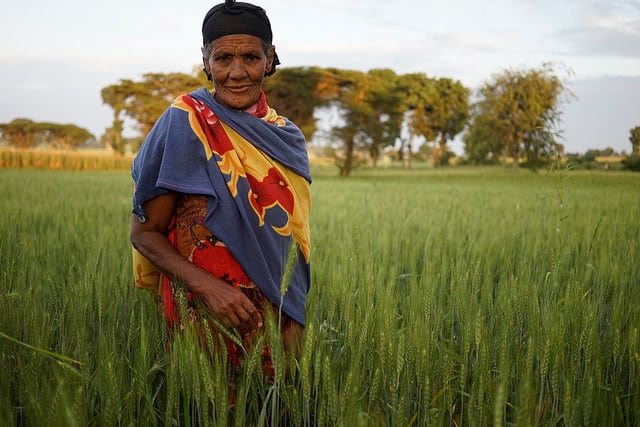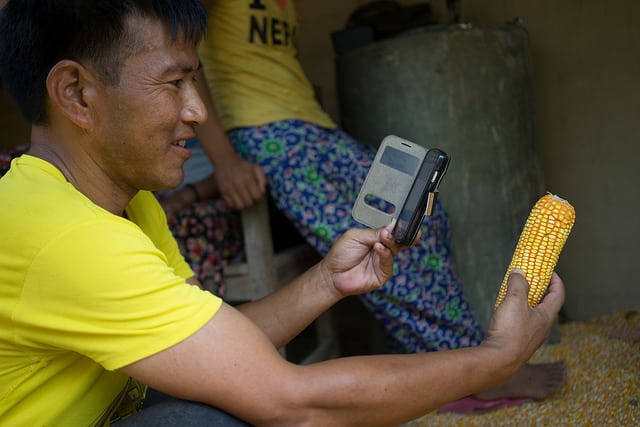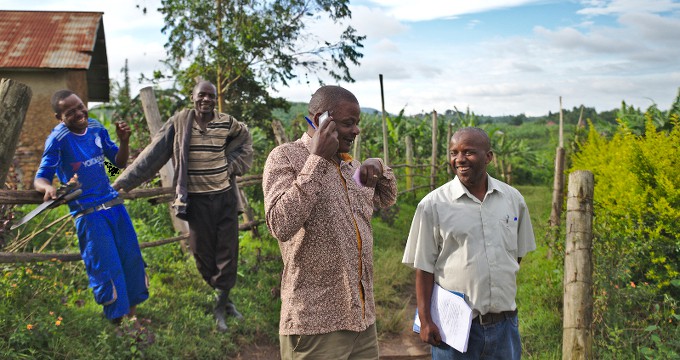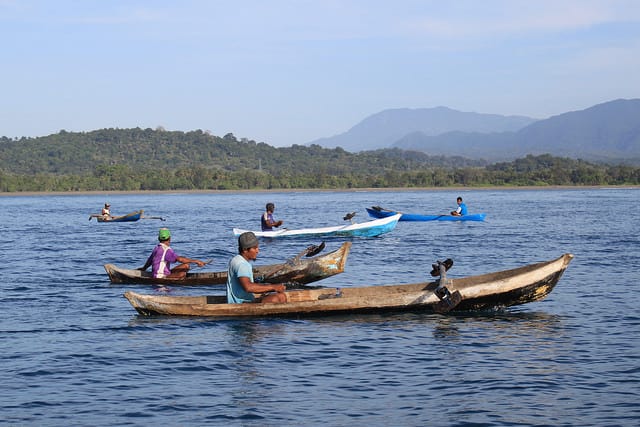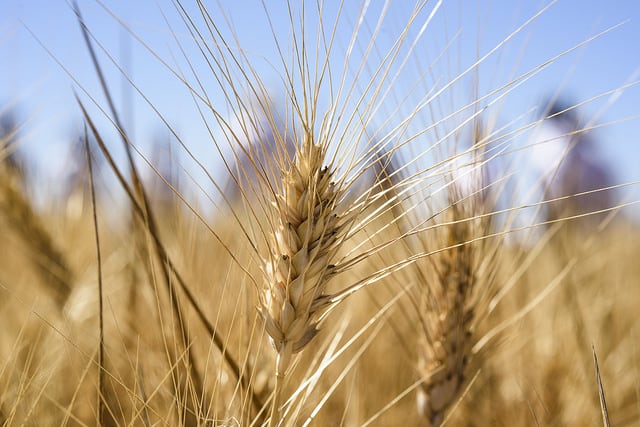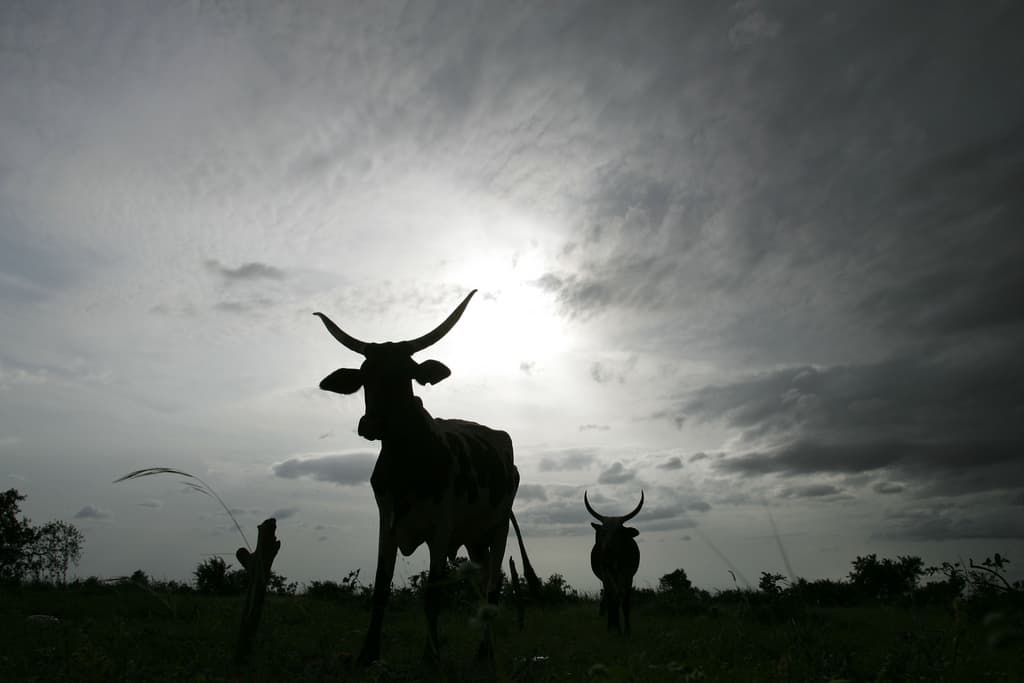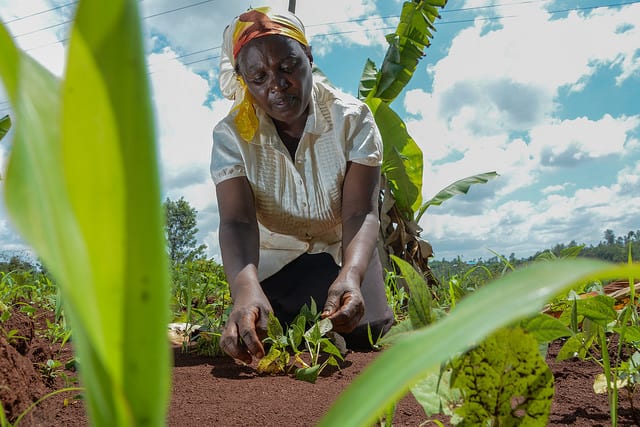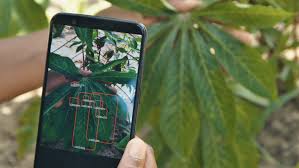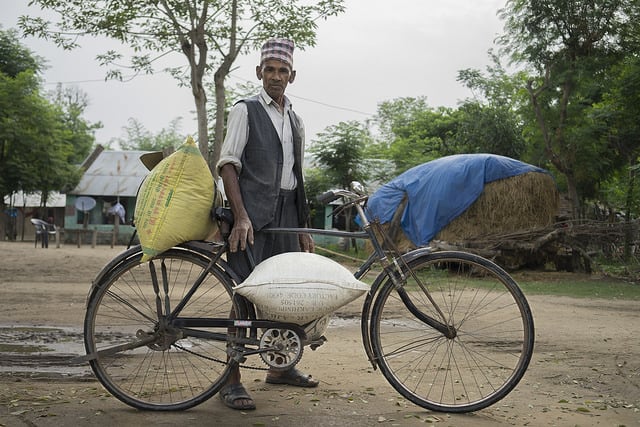2020 Winner
N-ALLyzer: From Nitrogen to ALL other nutrients
USA, Mexico, Brazil, Kenya, and Ethiopia
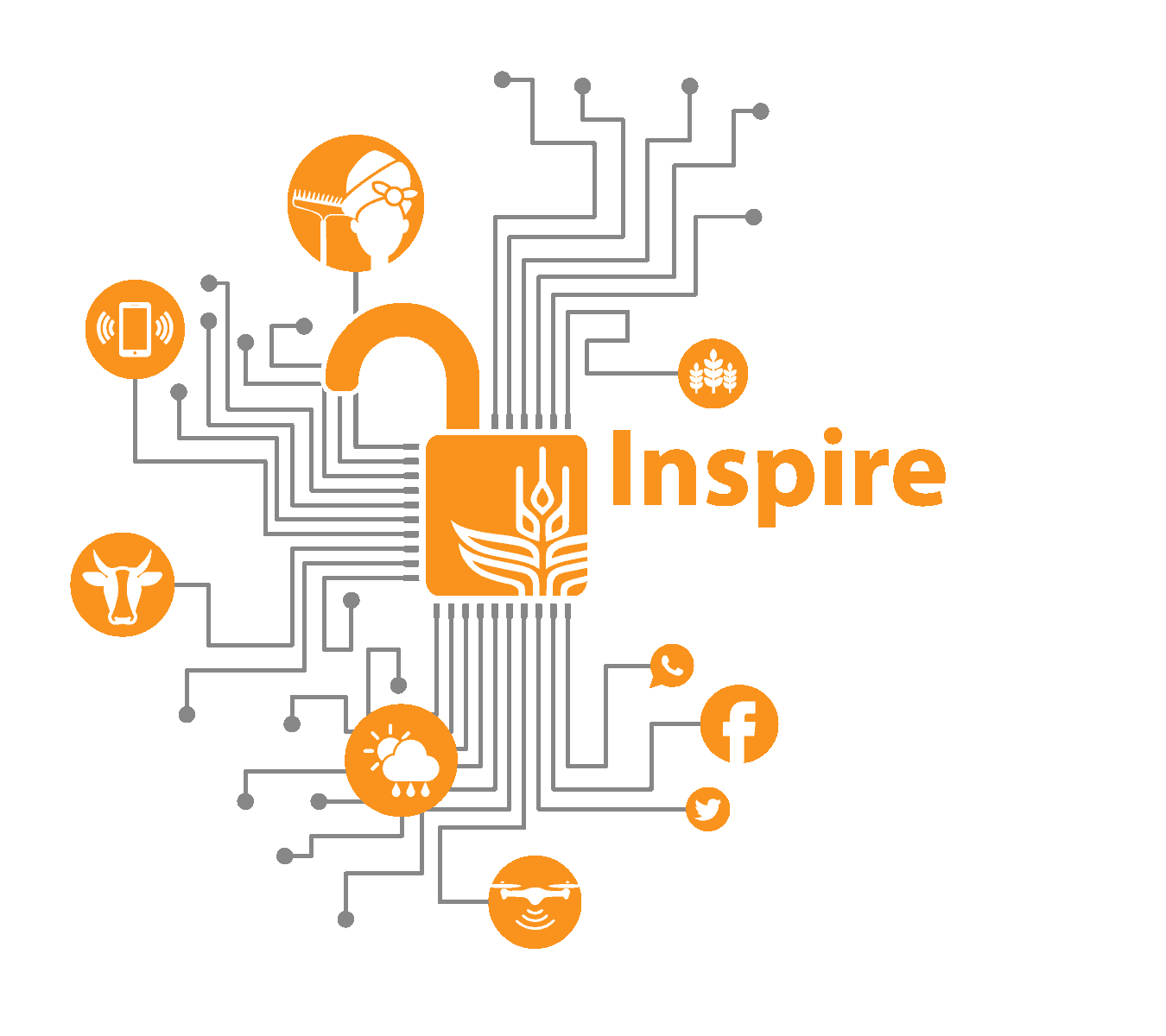
The N-ALLyzer app will assist farmers in making optimal economic decisions about fertilizer application rates, with minimal user input. Unlike the traditional nutrient calculations, the N-ALLyzer app requires simple mobile phone-based pictures of maize or wheat leaves and answers to a few key questions in order to generate customized fertilizer recommendations using big data analytics and simulations.
More about the project
Nitrogen (N) is the most limiting nutrient for cereal production, with wheat, maize, and rice accounting for more than 50 per cent of current nitrogen fertilizer consumption at 108 million metric tons per year. Nitrogen plays a critical role in the plant’s life cycle for key physiological processes, such as photosynthesis. Healthy plants maintain an optimal ratio of nitrogen to other nutrients.
Fertilizer use has supported current food demands and spared millions of hectares of land from slash-and-burn agriculture. However, current fertilizer practices are unsustainable, and often result in land degradation and nutrient mining.
The project will utilize known nutrient relationships in plant systems together with technological advancements, smartphone accessibility, big data, AI, ML, and crop modeling to develop a real-time nutrient recommendation system called N-ALLyzer.
This Inspire Challenge proposal was selected as a 2020 pilot project winner, receiving a total of US$ 100,000 to put their ideas into practice. Learn more about the Inspire Challenge Grant here.
Step by step
2021
JAN 2021
Greenhouse and field trials in Brazil, Mexico, and Nepal
Greenhouse trials began in São Paulo, Brazil, and the first round of plant nutrient data was collected on maize and wheat plants that received six different levels of nitrogen fertilizer. More than 300 samples were analyzed for mineral nutrient levels. These results inform the app’s nutrient detection and recommendation capabilities.
Field trials began in Obregon, Mexico to assess nutrient levels in wheat and three variations of maize. The field trial images below indicate nitrogen deficiencies.
Maize field trials for ten different nutrient treatments have begun in Nepal. Agronomic data for crop modeling has been collected.
FEB - MARCH 2021
Hydroponic experiments and plant sap analysis in Brazil
A second phase of greenhouse experiments were conducted in Brazil. Throughout these hydroponic experiments, sap nutrient analyses were conducted and nutrient data was collected through RGB/NDVI to figure the plant’s nitrogen levels.
Click here to watch a video of how the OptionLine team extracts plant sap for nutrient analysis.
FEB - MARCH 2021
Leaf imaging and plant sap analysis in Mexico
Leaf picture and plant sap analysis, which shows plant mineral levels and highlights nutritional deficiencies and excess
es, began in Mexico. The team uses these insights to calibrate N-ALLyzer’s nutrient detection capabilities.
FEB - MARCH 2021
N-ALLyzer app prototype launched across multiple platforms
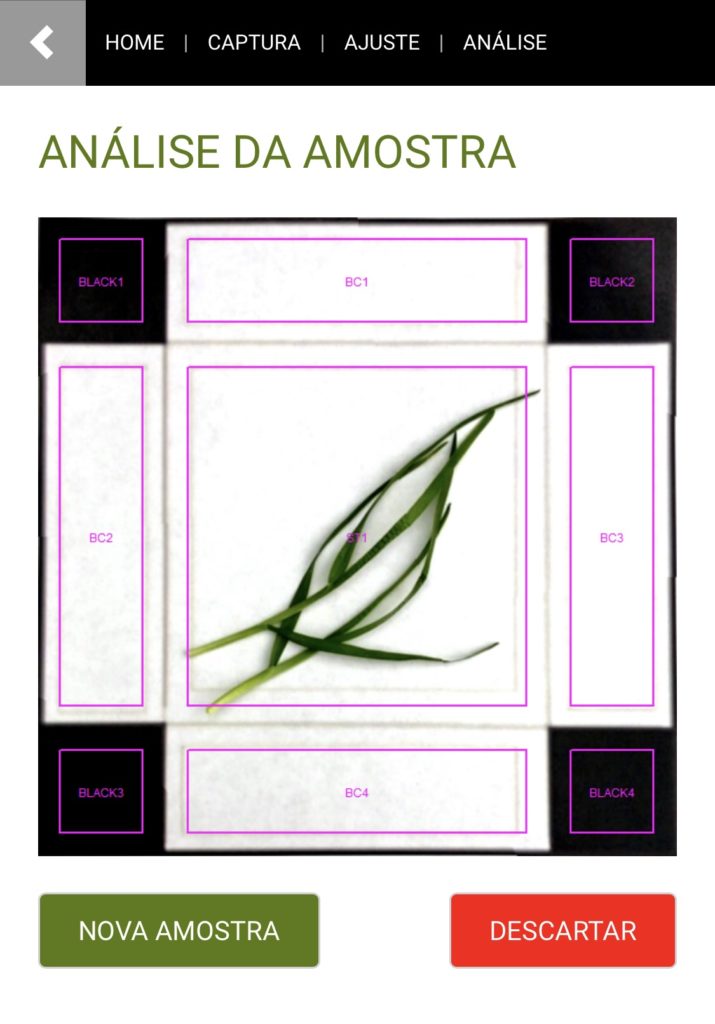
When a user takes a photo, N-Allyzer corrects the exposure and adjusts tonal levels to compensate for low contrast and poor lighting conditions. Different filters are then applied to optimize the contrast between low and high nitrogen levels in the leaves. The photo is automatically uploaded to cloud servers where it is interpreted.
The photo filters are also implemented within the user interface, so users can “see” and realize nitrogen levels through the camera video stream.
Click here to watch a video of the app in action.
JUNE - JULY 2021
Building the app’s AI
The team will build the mobile app’s AI that will determine the nitrogen level in the plant, as well as nitrogen’s correlation with other elements, based on the users’ smartphone images. The app will produce reliable statistical predictive models based on the plant, yield, and fertilizer information collected in the app.
JAN - AUG 2021
Developing a cloud computing platform for customized fertilizer recommendations
The team will develop a cloud computing platform to run mechanistic models based on leaf nutrient status, growth stage, grain yield, and fertilizer treatment information collected in the app. The platform will generate customized fertilizer recommendations.
JAN - AUG 2021
App development
The team will develop the app for a real-time, portable, reconfigurable, and independent use. It will enable the user to determine a plant’s nitrogen levels, as well as other elements that correlate with nitrogen, based on smartphone leaf pictures and simple user inputs.
SEPT 2021
Hands-on sessions for women extension workers and women in farming households
The team will offer hands-on sessions for women extension workers and women in farming households that will cover use of the app and interpretation of its fertilizer recommendations.
2020
OCT 2020
Project awarded US$100K Inspire Challenge grant
The project was one of seven winners of the Inspire Challenge 2020 and was awarded US$100K at the fourth annual convention of the CGIAR Platform Big Data in Agriculture, 19-23 October 2020.
Gender & Youth Inclusion
- The N-ALLyzer app encourages gender-equal, farm-level decision-making by democratizing fertilizer use information and making it easily accessible through the N-ALLyzer mobile phone application.
- The team will conduct an assessment on the existing knowledge of men and women farmers regarding fertilizer use, as well as digital literacy skills and existing ways of accessing technologies. These assessments will be conducted through focus group discussions that will include an emphasis on rural women groups (local communities or farmer’s associations) and seek to understand their needs and expectations for mobile phone technology.
- The application will be promoted through Agromulher, a social network that connects 85,000 women in agriculture throughout Latin America, in order to ensure that women farmers are exposed to the N-ALLyzer application.
- Youth in rural farming communities will be engaged as key points of contact in generating regular feedback on the use of the N-ALLyzer application and opportunities for entrepreneurship.
Meet all the Winners

